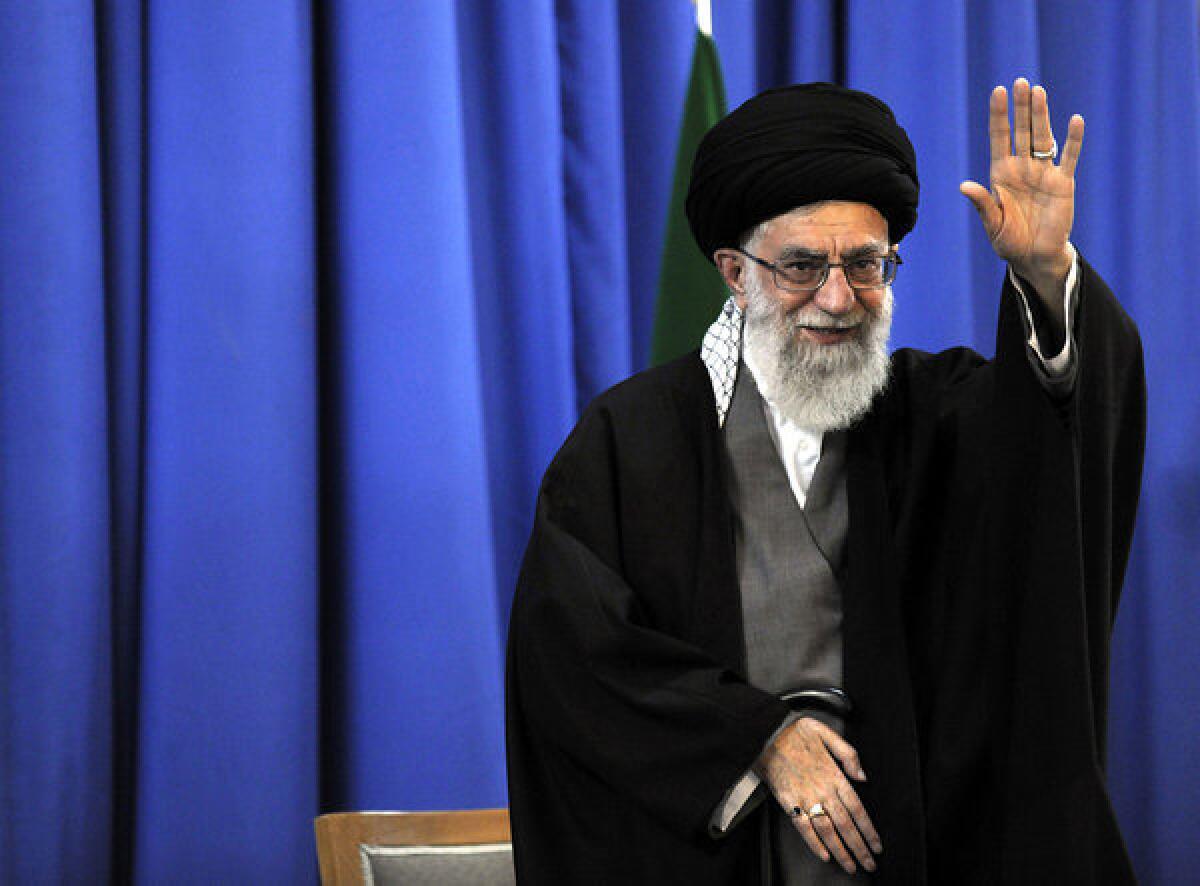U.S. presses Iran for counteroffer in nuclear talks

- Share via
WASHINGTON – The Obama administration pressed Iran to respond to the latest bid by six world powers seeking to curb Tehran’s nuclear program, warning that the United States and its allies may step up sanctions and suspend diplomacy if Iran does not provide a “substantive and concrete” response during negotiations this week in Almaty, Kazakhstan.
A senior administration official told reporters Wednesday that Iranian officials have said they were pleased by the offer presented during the last round of talks in Almaty, on Feb. 26, but they have so far given no indication that they will provide a counteroffer in meetings scheduled for Friday and Saturday.
“The pressure will only increase if Iran doesn’t begin to take concrete steps and actions,” said the official, who spoke anonymously to discuss sensitive diplomatic issues.
The six powers and Iran have held four inconclusive meetings since the beginning of last year in an effort to negotiate limits on Iran’s nuclear program.
Many nations fear Iran is seeking to obtain nuclear weapons capability. The Iranians say the program is solely for peaceful civilian purposes.
The Obama administration and Israel have each threatened to use military force to stop Iran’s nuclear program if diplomatic efforts fail to resolve the issue.
Diplomats and private experts have been gloomy about the prospects for this week’s talks, in part because Iranian authorities are presumed to be preoccupied by the presidential election that will take place in June.
Gary Samore, a top White House advisor on the nuclear issue until earlier this year, told a Brookings Institution gathering in Washington this week that he didn’t expect a deal this weekend because of the upcoming election.
But Samore said he thought that governments on both sides had an interest in keeping the diplomatic effort alive and that Iran might accept the current interim deal after the election.
The six powers -- China, Russia, the United States, France, Britain and Germany -- proposed in February that Iran suspend operations of an underground uranium enrichment center; halt production of medium-enriched uranium; and have most of the existing stockpile of the material, which can be quickly turned into nuclear bomb fuel, shipped out of the country.
In exchange, Iran would be given limited relief from sanctions, including permission to use gold as a currency for petroleum trade.
Although the deal is seen as an interim arrangement that would open the way for broader negotiations, the two sides remain far apart.
Some experts suggest that the upcoming talks in Almaty could yield one new development: a rare meeting between Iranian and American diplomats.
The Iranian delegation met one on one with German and British officials in February. U.S. officials, including President Obama, have said for some time that they are open to direct talks.
Iran’s supreme leader, Ayatollah Ali Khamenei, said in a recent speech that he was not opposed to such a meeting, though he expressed skepticism that it would be fruitful because of what he described as American intransigence.
Khamenei has received private messages emphasizing that Washington is not trying to overthrow the Iranian regime and is sincere in its desire to negotiate, said Ray Takeyh, an Iran specialist at the Council on Foreign Relations in Washington. He said both sides had reason for wanting to show at least limited progress in the upcoming talks, and a bilateral meeting could show that.
The senior administration official didn’t respond directly when asked if the Obama administration had sent private messages to Khamenei.
ALSO:
Coup thwarts search for Ugandan warlord Joseph Kony
Australia launches national inquiry into child sexual abuse
Korean tensions prompt U.S. to beef up defense of Guam
More to Read
Sign up for Essential California
The most important California stories and recommendations in your inbox every morning.
You may occasionally receive promotional content from the Los Angeles Times.













